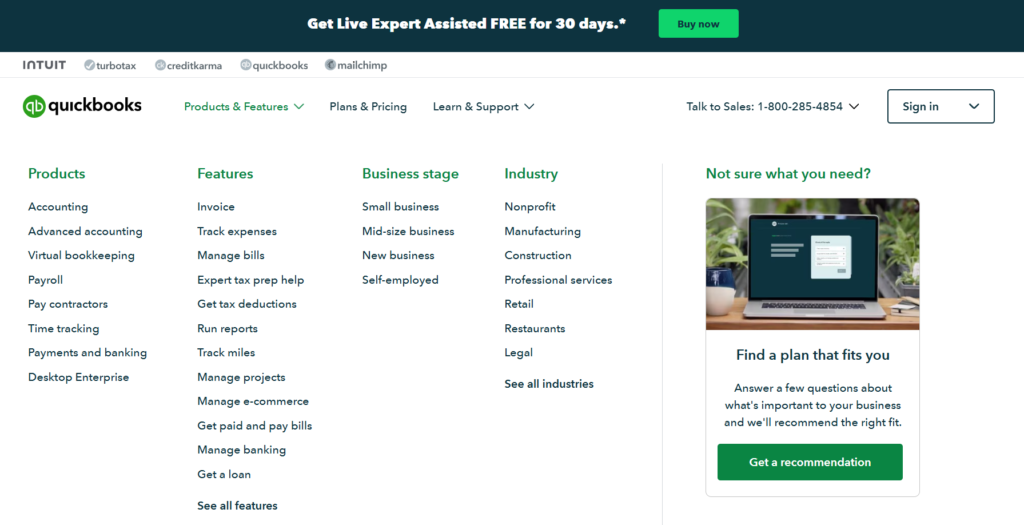tarting a real estate business can feel like diving into a vast, fast-paced marketplace, but with the right guidance and a solid plan, you can carve out your own path to success.
In fact, the U.S. real estate market is projected to reach $1.5 trillion in transaction volume in 2025, showing the tremendous potential for those ready to seize opportunities.
Whether you’re looking to manage rental properties, flip houses, or build a career as a top real estate agent, this step-by-step guide on how to start a real estate business in 2025 will equip you with all the knowledge and tools you need to launch your venture and thrive in this competitive industry.
Why Real Estate? Understanding the Potential
Before diving into the nitty-gritty of how to start a real estate business, let’s take a moment to explore why real estate is such a compelling business choice.
I remember my first encounter with real estate—it was a mix of excitement and intimidation. The potential for high returns, the tangible nature of properties, and the ability to create something lasting make real estate incredibly attractive.
Plus, with the market continuously evolving, there’s always something new to learn and opportunities to seize.
The Real Estate Landscape in 2025
The real estate market in 2025 is not just dynamic; it’s brimming with opportunities.
With advancements in technology, changing consumer behaviours, and evolving economic factors, the landscape is ripe for new entrepreneurs.
According to a report by the National Association of Realtors, the industry is expected to grow steadily, offering ample opportunities.
Embracing these trends can set you apart from the competition and position your business for long-term success. It’s an exciting time to be in real estate!
Step 1: Define Your Real Estate Niche
Identifying Your Focus Area
One of the first steps in how to start a real estate business is defining your niche.
Real estate is a broad field encompassing residential, commercial, industrial, and more. Think about where your passion lies and where you can offer the most value.
Specializing in residential properties allowed me to build strong relationships with homeowners and understand the local market intricacies better.
Assessing Market Demand
Once you’ve identified your potential niche, it’s essential to assess the market demand. Conduct thorough research to understand the needs and preferences of your target audience.
Utilize tools like Google Trends or Statista to gather data on market trends. For instance, if you’re leaning towards commercial real estate, explore areas with growing businesses or upcoming infrastructure projects.

Choosing a Profitable Niche
Selecting a profitable niche involves balancing your interests with market opportunities. Here are a few popular options:
- Residential Real Estate: Buying, selling, and managing homes.
- Commercial Real Estate: Handling office buildings, retail spaces, and industrial properties.
- Property Management: Managing rental properties on behalf of owners.
- Real Estate Investment: Flipping houses or investing in rental properties for passive income.
Choose a niche that not only excites you but also aligns with your financial goals and expertise.
Step 2: Develop a Solid Business Plan
Crafting Your Business Strategy
A business plan is your roadmap to success in how to start a real estate business: your step-by-step guide for success in 2025.
It outlines your business goals, strategies, target market, and financial projections. When I started, my business plan was instrumental in keeping me focused and accountable. Here’s what to include:
- Executive Summary: An overview of your business and objectives.
- Market Analysis: Insights into your target market and competition.
- Marketing and Sales Strategy: How you plan to attract and retain clients.
- Operational Plan: Day-to-day operations and management structure.
- Financial Projections: Revenue forecasts, expenses, and profitability.
For a more detailed approach, check out our Real Estate Business Planning Guide: Your Blueprint for Success.
Setting SMART Goals
Setting SMART (Specific, Measurable, Achievable, Relevant, Time-bound) goals is not just a good idea; it’s a game-changer when starting a real estate business.
For example, instead of saying, “I want to sell more properties,” set a goal like, “I aim to close ten property sales within the next six months.” This level of clarity helps you track progress and stay motivated, keeping you on the path to success.
Securing Funding
Starting a real estate business often requires substantial capital.
Whether you’re planning to buy properties, invest in marketing, or hire a team, having a solid financial foundation is crucial. Explore various funding options such as:
- Personal Savings: Using your funds to finance your business.
- Bank Loans: Traditional loans from financial institutions.
- Investors: Partnering with individuals or groups willing to invest in your business.
- Crowdfunding: Raising small amounts of money from a large number of people, typically via online platforms.
Creating a detailed financial plan within your business strategy is not just a good practice; it’s a necessity when starting a real estate business.
This plan can help you determine the best funding sources for your needs, ensuring you have a solid financial foundation to build your business. It’s about being proactive and taking control of your business’s economic future.
Step 3: Legalize Your Business
Choosing the Right Business Structure
Deciding on the right business structure is a pivotal step in how to start a real estate business. Common structures include:
- Sole Proprietorship: Simple to set up but offers no personal liability protection.
- Limited Liability Company (LLC): Provides liability protection and is relatively easy to manage.
- Corporation: Offers the highest level of liability protection but involves more regulations and paperwork.
I opted for an LLC because it balanced liability protection with operational flexibility.
Registering Your Business
Once you’ve selected your business structure, the next step in starting a real estate business is to register your business with the appropriate state and local authorities. This process typically involves:
- Choosing a Business Name: Make sure it’s unique and reflects your brand.
- Filing Necessary Paperwork: Submit the required documents to your state’s business registration office.
- Obtaining an EIN: An Employer Identification Number from the IRS is essential for tax purposes.
- Securing Licenses and Permits: Depending on your location and niche, you may need specific licenses to operate legally.
Understanding Real Estate Laws and Regulations
Navigating the legal landscape is crucial to starting a real estate business. Familiarize yourself with local, state, and federal laws that govern property transactions, zoning, landlord-tenant relationships, and more.
Consulting with a real estate attorney can provide valuable insights and ensure your business complies with all legal requirements.
Step 4: Build Your Brand and Online Presence
Creating a Memorable Brand
Your brand is more than just a logo; it’s the essence of your business. It should reflect your values, mission, and the unique value you offer.
When I started, I focused on building a brand that emphasized trust, expertise, and customer-centric service. Consider the following elements when crafting your brand:
- Brand Name: Choose something memorable and relevant.
- Logo and Design: Invest in professional design to create a visually appealing brand identity.
- Brand Voice: Develop a consistent tone and messaging that resonates with your target audience.
Developing a Professional Website
In today’s digital age, having a professional website is non-negotiable when starting a real estate business.
Your website serves as a virtual storefront, providing information about your services, listings, and contact details. Key features to include:
- Responsive Design: Ensure your site looks great on all devices.
- User-Friendly Navigation: Make it easy for visitors to find what they’re looking for.
- High-Quality Content: Share valuable information through blog posts, property listings, and testimonials.
- Contact Forms and Calls-to-Action: Encourage visitors to reach out or take specific actions.
Utilize platforms like WordPress or Squarespace to create a polished and functional website without needing extensive technical skills.
Leveraging Social Media
Social media is a powerful tool for building your brand and engaging with potential clients. Platforms like Facebook, Instagram, and LinkedIn allow you to showcase properties, share industry insights, and connect with your audience on a personal level. Here are some tips for how to start a real estate business using social media:
- Consistent Posting: Regular updates keep your audience engaged and informed.
- Visual Content: High-quality photos and videos of properties can attract more interest.
- Engagement: Respond to comments, messages, and reviews to build relationships and trust.
Step 5: Implement Effective Marketing Strategies
Content Marketing
Creating valuable content is a cornerstone of effective marketing when how to start a real estate business.
Blogging about real estate trends, offering buying and selling tips, and sharing success stories can position you as an industry expert. Consistent blogging not only improved my SEO but also built trust with my audience.
Search Engine Optimization (SEO)
Optimizing your online content for search engines is essential for increasing visibility in how to start a real estate business: your step-by-step guide for success in 2025.
Incorporate your primary keyword, “How to Start a Real Estate Business: Your Step-by-Step Guide for Success in 2025,” and related terms naturally throughout your website and blog posts.
Here are some SEO best practices:
- Keyword Research: Use tools like Ahrefs or SEMrush to identify relevant keywords.
- On-Page SEO: Optimize meta titles, descriptions, headers, and image alt texts.
- Quality Backlinks: Earn links from reputable sites to boost your authority. For example, linking to authoritative sources like the U.S. Small Business Administration can enhance credibility.
- Mobile Optimization: Ensure your site is mobile-friendly, as a significant portion of traffic comes from mobile devices.

Email Marketing
Building an email list allows you to nurture leads and maintain relationships with past clients—crucial aspects of how to start a real estate business.
Offer valuable incentives, such as free eBooks or market reports, to encourage sign-ups. Tools like Mailchimp or ConvertKit can help you manage your campaigns effectively.

Networking and Partnerships
Networking is crucial in how to start a real estate business. Attend industry events, join local business groups, and build relationships with other professionals like mortgage brokers, contractors, and attorneys.
These connections can lead to referrals and collaborative opportunities that can propel your business forward.
Step 6: Manage Your Finances Wisely
Budgeting and Financial Planning
Effective financial management is the backbone of any successful how to start a real estate business.
Create a detailed budget that outlines your expected income and expenses. Track your cash flow meticulously to ensure you’re staying on top of your financial health. Tools like QuickBooks can simplify this process.

Understanding Taxes and Accounting
Navigating taxes can be daunting, but it’s essential to understand your obligations. Familiarize yourself with real estate-specific tax deductions and credits.
Consulting with a certified accountant or tax professional can help you maximize your tax benefits and avoid costly mistakes.
Investing in Growth
Reinvesting profits back into your business can fuel growth. Whether it’s expanding your team, enhancing your marketing efforts, or investing in new technologies, strategic reinvestment can help you scale your operations and increase your market presence.
For those interested in expanding into more specialized areas, our Beginner’s Guide to Investing in Luxury Real Estate Funds provides valuable insights into high-end investment opportunities.
Step 7: Provide Exceptional Customer Service
Building Trust and Reputation
In how to start a real estate business, your reputation is everything. Providing exceptional customer service can set you apart from the competition and foster long-term relationships.
Here’s how to ensure your clients are satisfied:
- Clear Communication: Keep clients informed at every stage of the process.
- Transparency: Be honest about potential challenges and set realistic expectations.
- Personalized Service: Tailor your approach to meet each client’s unique needs and preferences.
Handling Challenges and Feedback
I’ve faced my fair share of challenges in how to start a real estate business, from unexpected market shifts to difficult negotiations.
The key is to handle these situations with grace and learn from them. Encourage feedback and use it to improve your services continually.
Addressing concerns promptly and effectively can turn a negative experience into a positive one, enhancing your reputation and client loyalty.
Step 8: Scale Your Business
Expanding Your Team
As your business grows, you may need to expand your team to manage increased demand for starting a real estate business.
Hiring the right people can help you maintain high service standards and free up your time to focus on strategic growth. Consider roles such as:
- Real Estate Agents: To handle more clients and listings.
- Marketing Specialists: To enhance your marketing efforts.
- Administrative Assistants: To manage paperwork and day-to-day operations.
Diversifying Your Services
Diversifying your services can open up new revenue streams and attract a broader clientele in how to start a real estate business.
For example, you might add property management, real estate consulting, or investment advisory services. Diversification not only boosts your income but also makes your business more resilient to market fluctuations.
Leveraging Technology
Embracing technology can streamline your operations and enhance your efficiency in how to start a real estate business.
Invest in real estate software for customer relationship management (CRM), property management, and marketing automation.
Tools like Zillow Premier Agent or HubSpot CRM can provide valuable support as you scale your business.

Step 9: Stay Informed and Adapt
Continuing Education
The real estate market is constantly evolving, so staying informed is crucial when how to start a real estate business.
Invest in continuing education through courses, webinars, and industry conferences. Organizations like the National Association of Realtors offer valuable resources and training programs to keep you updated on the latest trends and best practices.
Monitoring Market Trends
Keeping an eye on market trends can help you anticipate changes and adjust your strategies accordingly to start a real estate business.
Subscribe to industry publications, follow influential real estate blogs, and participate in online forums to stay ahead of the curve.
Understanding shifts in buyer behaviour, economic indicators, and technological advancements can give you a competitive edge.
Adapting to Change
Flexibility is key to starting a real estate business. Be prepared to adapt your business model, marketing strategies, or service offerings in response to market conditions.
For example, the rise of virtual tours and digital transactions has transformed how properties are showcased and sold. Embracing these changes can enhance your efficiency and appeal to tech-savvy clients.
Step 10: Celebrate Your Successes and Learn from Failures
Acknowledging Milestones
Starting and growing a real estate business is a journey filled with both triumphs and setbacks.
Take time to celebrate your successes in how to start a real estate business, whether it’s closing a significant deal, hitting a revenue milestone, or receiving positive client feedback.
Recognizing these achievements can boost your motivation and reinforce your commitment to your business.
Learning from Mistakes
Mistakes are inevitable, but they are also invaluable learning opportunities in how to start a real estate business.
Reflect on what went wrong, identify the lessons learned, and implement changes to prevent similar issues in the future.
This growth mindset will not only improve your business operations but also strengthen your resilience as an entrepreneur.
Final Thoughts: Your Real Estate Journey Starts Now
Embarking on the journey to how to start a real estate business is both exciting and challenging.
By following this step-by-step guide, you’ll be well-equipped to navigate the complexities of the industry and build a successful venture this year.
Remember, persistence, continuous learning, and a genuine passion for real estate are your greatest assets.
Feel free to explore more resources on Entrepreneur.com or check out insightful articles on Investopedia to deepen your understanding.
Additionally, for those looking to delve deeper into investment strategies, our guide on How to Mitigate Risk in Luxury Real Estate Fund Investments offers valuable strategies.
And if you have any questions or need further guidance, don’t hesitate to reach out or leave a comment below. Here’s to your success in the vibrant world of real estate!





Comments 5